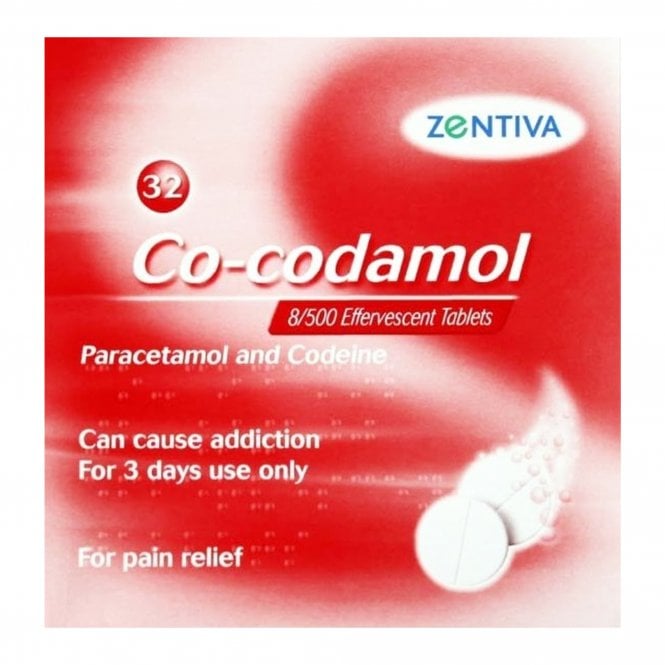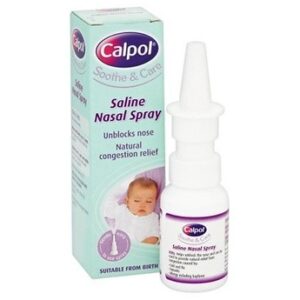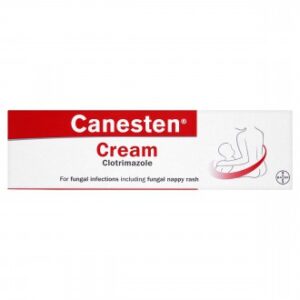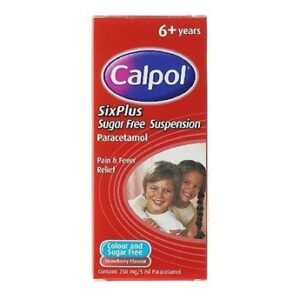Description
- Co-codamol 8/500mg Effervescent Tablets are a convenient way to take co-codamol if you don’t like tablets. The active ingredients are paracetamol and codeine phosphate hemihydrate. Codeine can be used in children over 12 years of age for short-term relief of moderate pain that is not relieved by paracetamol, ibuprofen, or aspirin alone. It can be used on its own or in combination with other pain killers. It is used to relieve muscular and rheumatic pain, headache, migraine, neuralgia (severe burning or stabbing pain following the line of a nerve), toothache, and period pains. Do not take less than four hours after taking other painkillers.
Key Features of Co-codamol 8/500mg Effervescent Tablets
- Convenient alternative to tablets
- Contains paracetamol and codeine phosphate hemihydrate
- Can be used for children over 12 years old
- To relieve pain that is not relieve by paracetamol, ibuprofen, or aspirin alone
Warnings
- This medicine contains codeine which can cause addition if you take it continuously for more than three days. This can give you withdrawal symptoms from the medicine when you stop taking it.
- If you take a painkiller for headaches for more than 3 days it can make them worse.
- This medicine contains paracetamol. Do not take anything containing paracetamol while taking this medicine.
Do not take Co-codamol 8/500 if you:
- know that you metabolise codeine into morphine very rapidly
- are breast feeding
- have diarrhoea caused by poisoning until the toxic material l has been eliminated, or have severe bloody diarrhoea
- are a child or adolescent for pain relief (0-18 years of age) after removal of your tonsils or adenoids due to obstructive sleep apnoea syndrome
- are a child under 12 years old
- are allergic to paracetamol, codeine, other opioids or any of the other ingredients in the tablets
- have a dependency on alcohol
- have difficulty breathing, obstructive airways disease or other chronic lung disease
- are having an asthma attack
- have bowel problems
- have raised pressure inside the skull or around the brain or head injury
Talk to your doctor or pharmacist before taking Co-Codamol 8/500 if you:
- have an under-active thyroid gland
- have a disease or tumour of the Adrenal gland such as Addison’s disease or high blood pressure caused by a tumour near a kidney (pheochromochytoma)
- have a condition which weakens the muscles calles myasthenia gravis
- are elderly
- feel weak, have low blood pressure or are in shock
- are already taking other medicines containing paracetamol
- have liver or kidney problems
- are on a low sodium diet
- have an inflammatory bowel disease
- have a gall bladder or gall stones
- have recently had surgery on your gastro-intestinal tract or urinary system
- have an enlarged prostate gland and have difficulty urinating and are male
- suffer from epilepsy of suffered head injury or raised pressure in the skull (may cause painful eyes, changes in vision or headache behind the eyes)
- suffer from alcoholism, drug abuse or dependence or mental illness
The hazards of overdose are greater in those with non-cirrhotic alcoholic liver disease.
- Codeine is transformed to morphine in the liver by an enzyme.
- Morphine is the substance that produces pain relief.
- Some people have a variation of this enzyme and this can affect people in different ways.
- In some people, morphine is not produced or produced in very small quantities, and it will not provide enough pain relief.
- Other people are more likely to get serious side effects because a very high amount of morphine is produced.
- If you notice any of the following side effects, you must stop taking this medicine and seek immediate medical advice: slow or shallow breathing, confusion, sleepiness, small pupils, feeling or being sick, constipation, lack of appetite.
Children and adolescents
- Co-codamol must not be given to children under 12 years of age.
Use in children and adolescents after surgery:
- Codeine should not be used for pain relief in children and adolescents after removal of their tonsils or adenoids due to Obstructive Sleep Apnoea Syndrome.
- Use in children with breathing problems: Codeine is not recommended in children with breathing problems, since the symptoms of morphine toxicity may be worse in these children.
Side Effects
Like all medicines, Co-Codamol 8/500 can cause side effects although not everybody gets them.
Stop taking Co-Codamol and see a doctor or go to hospital straight away if:
- You get swelling of the hands, feet, ankles, face, lips, or throat which may cause difficulty in swallowing or breathing, increased sweating, redness or flushed face, mucosal lesions (such as mouth ulcers), drug fever. You could also notice an itchy, lumpy rash or nettle rash (hives). This may mean you are having an allergic reaction to Co-Codamol.
- You get a severe skin reaction, such as reddening of the skin with blisters or peeling and may be associated with a high fever and joint pain. There may also be severe blisters and bleeding in the lips, eyes, mouth, nose, and genitals (Stevens-Johnson syndrome or toxic epidermal necrolysis) or if you experience a red, scaly skin rash with bumps under the skin and blister (acute generalised exanthematous pustulosis or fixed drug eruption).
Talk to your doctor straight away if you notice any of the following serious side effects:
-
- Severe stomach pain, which may reach through your back. This could be a sign of inflammation of the pancreas (pancreatitis).
Tell your doctor or pharmacist if any of the following side effects get serious or lasts longer than a few days:
-
-
- Constipation, feeling sick (nausea), being sick (vomiting)
- Dizziness, light-headedness, drowsiness, confusion
- Pain and difficulty passing urine
- You get infections or bruise more easily. This could be because of a blood problem.
Other side effects
-
-
- Gastrointestinal system -stomach irritation (mild stomach pain, heartburn, or feeling sick), constipation, being sick, loss of appetite, dry mouth, difficulty in the passage of food through guts, abdominal pain and swelling (may be signs of liver damage or a swollen intestine)
- Heart – slow heart rate, palpitations, low blood pressure, inflammation of the heart muscle
- Urinary system – a less frequent need to pass urine kidney problems
- Nervous system – mood changes, depression, hallucinations (Seeing or hearing things that are not real), restlessness, excitation, fits, increased pressure in the skill (painful eyes, changes in vision or headache behind the eyes), headache, difficulty sleeping, nightmares, reduced alertness, tolerance (medicine has less effect) or dependence (suffer from withdrawal symptoms e.g. tremor, difficulty sleeping, sweating, increased heart rate, increased breathing rate, raised blood pressure and feeling or being sick if the medicine is stopped too quickly)
- Eyes – blurred or double vision, extremely small pupils
- Reproductive system – lower abdominal pain (may be caused by spasms of the uterus)
- Others – trembling, unusual tiredness or weakness, general discomfort and illness, low body temperature
How do I know if I am addicted?
If you take the medicine according to the instructions on the pack it is unlikely that you will become addicted to the medicine. However, if the following apply to you it is important that you talk to your doctor:
-
-
- You need to take the medicine for longer periods of time
- You need to take more than the recommended dose
- When you stop taking the medicine you feel very unwell but you feel better if you start taking this medicine again
Ingredients
The active ingredients are paracetamol and codeine phosphate hemihydrate. Each tablet contains 500mg paracetamol and 8mg codeine phosphate hemihydrate.
For a list of other ingredients see the patient information of the pack you receive as different brands may have different other ingredients.








Reviews
There are no reviews yet.